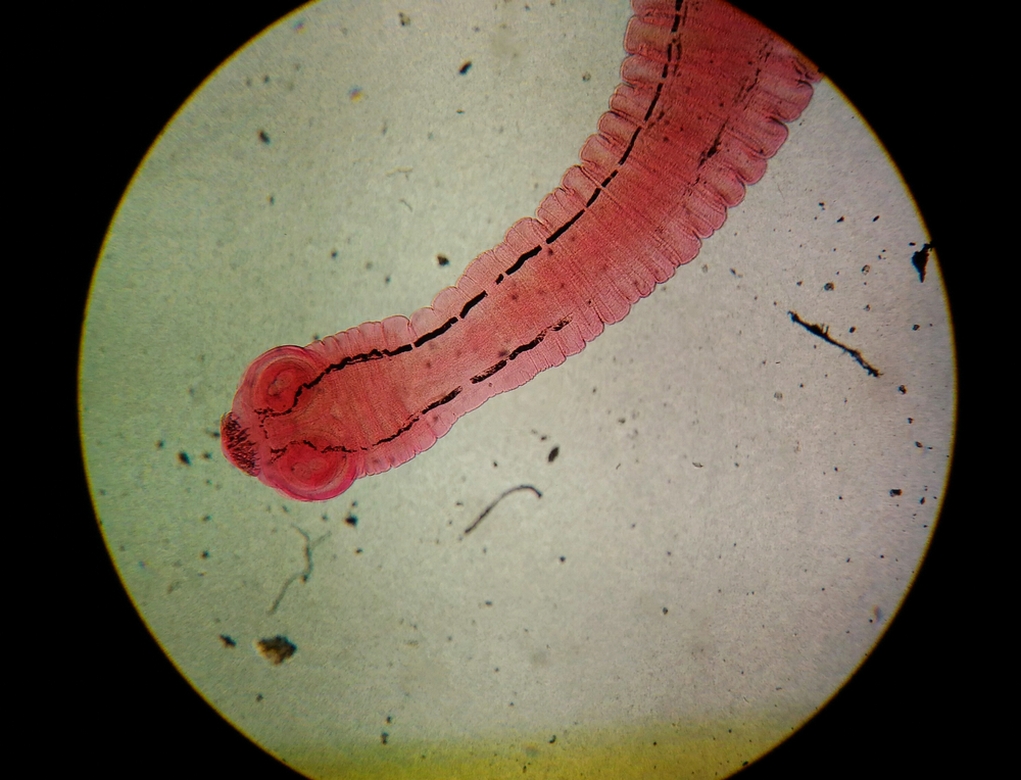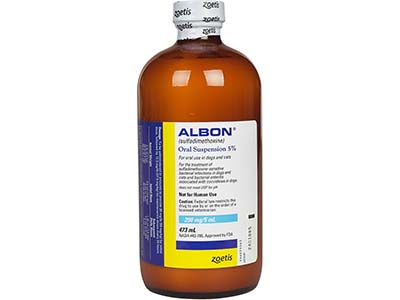
Table of Contents
- A Vet’s Guide to Dewormer for Dogs
the how, what, why and when
- 1. Praziquantel
- How Do I Know If My Dog Has Tapeworms?
- How Can I Prevent Tapeworms in My Dog?
- Praziquantel Side Effect and Drug Interaction
- 2. Fenbendazole
- How Do I Know If My Dog Has Parasites?
- How Can I Prevent These Parasites?
- Fenbendazole Side Effect and Drug Interaction
- 3. Pyrantel Pamoate
- How Do I Know If My Dog Has These Parasites?
- How Can I Prevent These Parasites?
- Pyrantel Pamoate Side Effect and Drug Interaction
- 4. Sulfadimethoxine
- How Can I Prevent Coccidia in My Dog?
- Sulfadimethoxine Side Effect and Drug Interaction
- Vet's Guide Dewormers for Dogs – Closing Thoughts
At one time or another in your dog’s life, he may need to take medication for internal parasites or “worms”.
If you believe that your dog is suffering from a worm infestation, it's best to seek the advice of your veterinarian for treatment.
There are different dewormers for dogs brands, and many of them only treat certain types of internal parasites.
In my clinical practice, I often see owners whose dogs already suffer from parasitic infections due to a lack of prevention.
They are also often curious about why one certain medication is needed over another; if their dog is already on a dewormer that covers certain internal parasites, they wonder why I prescribe a different one.
It's crucial for every pet owner to prevent worm infections, not only for the sake of their dogs but also to protect other dogs and people in or around the household.
Studies show that the prevalence of worms in the dog population can be as high as 54.3%, depending on the geographical location (1).
In a pet store in Atlanta, it was found that 52% of puppies had at least one type of parasite.
I will attempt to explain everything regarding dog dewormers in this article.
The skinny on the situation is that not all dewormer for dogs brands are alike.
Here, I will cover four of the most commonly prescribed dewormer for dog medicines and which parasites they are used to treat.
You'll also learn how each is administered, how and why they work, and any known side effects or drug interactions that they may have.
MORE: How To Deworm A Dog – A Guide for Pet Owners
A Vet’s Guide to Dewormer for Dogs
the how, what, why and when
1. Praziquantel
Used for: Tapeworms

Praziquantel is an anthelmintic used in many different parasite infection medications. The most common dewormer for dogs brand names that use praziquantel are:
- Profender
- Droncit
- Iverhart Plus
- Virbantel
- Milbemax
- Drontal and Drontal Plus
Most are oral tablets or powders, some are injectables, and a newer topical product (Profender) is available.
Some dewormers contain only praziquantel, while others contain other medications.
In some countries, praziquantel is available over-the-counter. In others, it requires a veterinary prescription.
In the United States, you can purchase some medications with over-the-counter praziquantel, while others require a prescription.
It has been shown to be 100% effective against a number of worms in dogs and cats, but particularly many types of tapeworms (2, 3, 4).
How it works:
Praziquantel damages the tapeworm’s skin, allowing the dog’s own immune system to kill the worm.
Dead worms are often not seen in the stool, as they often disintegrate. Praziquantel is used primarily for the treatment of tapeworms, also known as cestodes. The most common tapeworm species in cats and dogs is Dipylidium caninum.
Studies demonstrated how praziquantel dog dewormers can also treat infections associated with other types of tapeworms, including Taenia species and Mesocestoides, and Echinococcus species (5, 6, 7). If your dog travels to certain areas of the European Union, treatment for Echinococcus may be required by law before the import of the pet into the country.
How Do I Know If My Dog Has Tapeworms?
 Tapeworms adhere their “head” to the wall of the dog's digestive tract, and tapeworm's “body” produces egg packets. These egg packets link together and form what looks like a worm. The packets of eggs break off and spread in the dog's feces. They often look like little grains of rice stuck to the fur around the anus, on the fresh stool itself, or on carpeting.
Tapeworms adhere their “head” to the wall of the dog's digestive tract, and tapeworm's “body” produces egg packets. These egg packets link together and form what looks like a worm. The packets of eggs break off and spread in the dog's feces. They often look like little grains of rice stuck to the fur around the anus, on the fresh stool itself, or on carpeting.
Some dogs with tapeworms show “scooting” behavior – dragging their rear end and anus across the ground. This action can spread tapeworm eggs into the carpet. Dogs infected with fleas often have tapeworms as well.
How Can I Prevent Tapeworms in My Dog?
If you suspect your dog has tapeworms, talk to your veterinarian before trying any dewormer for dogs.
Your vet may request a stool sample for confirmation.
If the worm or tiny “rice” on the hair is found, this can also be submitted for testing.
The most common tapeworm in dogs (Dipylidium caninum) can often be prevented by a good flea control program.
Fleas transmit tapeworms to dogs.
It can be important to control both fleas and tapeworms in households with children or immuno-compromised individuals.
While Dipylidium caninum does not commonly infect humans, humans can become infected.
Children are most commonly infected by ingesting an infected flea.
Side effects are very rare but possible, therefore accurate dosage is crucial.
Talk to your vet directly about treating dogs with praziquantel and the appropriate dosage of this dewormer.
Monthly, year-round flea control (commonly with flea pills) and monthly de-worming with a combination oral product that contains praziquantel can help prevent tapeworms in dogs and your household.
Praziquantel is most commonly given as a single dose for the treatment of tapeworms in dogs.
However, depending on the situation, a second dose may be given a few weeks later.
Praziquantel Side Effect and Drug Interaction
Praziquantel is bitter and may cause nausea in some dogs.
Otherwise, very few side effects are seen in dogs.
It can interact with other drugs normally used with canines, such as cimetidine, ketoconazole, and itraconazole.
Talk to your veterinarian before giving praziquantel if your pet is taking these drugs or if you're using a flea shampoo.
Praziquantel is considered safe for use in pregnant dogs.
Do not use praziquantel in puppies under 4 weeks of age.
Most praziquantel dewormer for dogs products is not labeled for use in cats or dogs under 8 weeks of age.
MORE INFO: How Do Dogs Get Worms?
2. Fenbendazole
Used for: Roundworms, Hookworms, Tapeworms, Taenia tapeworms, Giardia protozoal parasite, Lungworms, Flukes

Fenbendazole is a benzimidazole anthelmintic. The brand name of this dewormer for dog medicine is Panacur. Fenbendazole is available for dogs as an oral liquid and granules.
Most often it's given by syringe or granules sprinkled onto the dog’s food.
Fenbendazole is one of the few “broad spectrum” dog deworming medications.
It treats a wide variety of intestinal parasites in canines and other animals.
Many studies have demonstrated its effectiveness against the above-mentioned worm types in dogs and cats (8, 9, 10).
How it works:
Fenbendazole dog dewormer kills parasites by inhibiting how the worm takes in glucose from the dog's body.
Without glucose, there is no energy for the worm to sustain itself, and it dies or is weakened enough to be flushed from your pet’s system.
How Do I Know If My Dog Has Parasites?
 Most puppies are infected with hookworms or roundworms (sometimes both) at birth.
Most puppies are infected with hookworms or roundworms (sometimes both) at birth.
Due to the life cycle of these parasites, the worms can become “dormant” in the mother’s muscle – where it is almost impossible to kill with dog dewormers.
Hormonal changes in the mother dog can stimulate the parasite to awaken and infects puppies through the mother's breast milk or placenta in the womb.
Fenbendazole has been shown as an effective way to prevent these infections (11).
Sometimes live roundworms can be seen in your dog’s stool.
They are more likely to be seen dead after a routine deworming.
Hookworms are microscopic and are not seen in the stool.
Puppies that have diarrhea, are anemic, or don’t feed well may be infected with one or more intestinal parasites.
Adult dogs can also suffer from some less common parasites, such as flukes, lungworms, and tapeworms.
If your dog has chronic diarrhea or other digestive problem, talk to your veterinarian about broad-spectrum de-worming with fenbendazole.
Sometimes, an unusual parasite is causing the problem and can’t be easily detected by routine diagnostic tests.
Many common parasites can be diagnosed by providing your veterinarian with a fresh stool sample for testing.
The eggs or organisms are often seen by microscope or ELISA testing at the vet hospital.
How Can I Prevent These Parasites?
Breeders should have a treatment plan in place for their breeding bitches, as it is important to prevent the transmission of these parasites to the puppies.
Treatment once or several times with fenbendazole should be considered for any pregnant dog, under the direction of a veterinarian.
The same can be done at home if your bitch is pregnant.
Puppies should receive dog deworming treatments starting at 8 weeks of age and as directed by a veterinarian.
Cleaning up feces immediately after they are voided is important in preventing the spread of disease.
This is especially true for puppies, as they are most likely to be infected.
Using a monthly combination of dewormer for dogs with heartworm prevention can help to reduce parasites.
Fenbendazole Side Effect and Drug Interaction
Vomiting and nausea are sometimes associated with fenbendazole dog dewormer usage.
In small animals, other drugs don’t typically interact with fenbendazole (12, 13, 14).
Your veterinarian can determine the dose of this dewormer for dogs appropriate for your pet and how long the treatment will occur.
Fenbendazole dewormer for dogs is often used daily for 3-5 days, and a second course may be necessary depending on what parasite is being treated.
It is best to give fenbendazole with food.
RELATED: Worms In Dog Poop – What It Means and What You Should Do
3. Pyrantel Pamoate
Used for: Pinworm, Hookworms, Roundworm, stomach worms

Pyrantel pamoate is an anthelmintic used in several different parasite infection medications. There are many dog dewormer brands that use it in their formulations, but the two most common dewormer for dogs brand names are:
- Strongid
- Nemex
Pyrantel pamoate is one of the most common and safest de-worming medications on the market with a high efficacy rate (15, 16, 17). It is available over-the-counter as liquid or tablets and is commonly given during puppy visits to the veterinarian.
It is also a common ingredient as a monthly de-wormer with heartworm prevention tablets. Pyrantel pamoate comes in liquid suspensions, pastes, tablets, and in heartworm prevention combination products.
How it works:
It works on the parasite’s nervous system.
It basically paralyzes the worm, so the worm releases its hold inside the dog and is expelled with the feces.
Once out of the dog, the worms die. Sometimes dead or live worms can be seen in the stool after a treatment with pyrantel pamoate.
Pyrantel pamoate does not absorb well into the dog’s bloodstream.
It only works within the digestive tract and the worms it comes in contact with there.
It does not last very long and quickly passes through the dog's body.
Pyrantel pamoate treats roundworms, hookworms, and stomach worms. It does not treat larval or encysted forms of parasites.
How Do I Know If My Dog Has These Parasites?
Same as before, most puppies are infected with hookworms or roundworms (sometimes both) at birth.
Due to the life cycle of these parasites, the worms can become “dormant” in the mother’s muscle – where it is almost impossible to kill with dewormers.
Hormonal changes in the mother dog can stimulate the parasite to awaken and infects the pups through the breast milk or placenta in the womb.
Sometimes live roundworms can be seen in your dog’s stool. They are more likely to be seen dead after a routine deworming.
Hookworms are microscopic and are not seen in the stool.
Puppies that have diarrhea, are anemic, or don’t feed well may be infected with one or more intestinal parasites.
Many common parasites can be diagnosed by providing your veterinarian with a fresh stool sample for testing.
The eggs or organisms are often seen by microscope or ELISA testing at the vet hospital.
How Can I Prevent These Parasites?
It is important to incorporate pyrantel pamoate treatment into a breeding program.
While other dewormers for dogs, like fenbendazole, can also be used safely in pregnant bitches, using more than one type of dewormer for dogs will provide the best coverage.
While safe, the treatment of pregnant dogs should be under the direction of a veterinarian.
Puppies often receive (as they should) dog deworming treatment with pyrantel pamoate starting at 8 weeks of age and as directed by a veterinarian.
Since this product is poorly absorbed into the dog’s bloodstream, frequent deworming is safe.
As the puppy grows, other stages of parasites also grow.
Multiple dewormings will help to rid the infection quicker and more effectively.
Typically there are 2-3 weeks between deworming treatments. Cleaning up feces immediately after they are voided is important in preventing the spread of disease.
This is especially true for puppies, as they are most likely to be infected.
A monthly combination of dog dewormer with heartworm prevention can help reduce parasites.
Pyrantel Pamoate Side Effect and Drug Interaction
Diarrhea, straining and occasional vomiting are the most common side effects of Pyrantel Pamoate.
If your dog vomits frequently or violently after deworming with pyrantel pamoate – contact your veterinarian.
Many worms killed at one time with pyrantel pamoate can cause a worm impaction in your dog (obstruction of the dog's digestive tract with dead worms).
Pyrantel pamoate is otherwise a very safe dewormer for dogs (18, 19, 20).
Puppies can be dewormed as early as 2 weeks of age under the direction of a veterinarian.
If your dog is taking other medications, such as levamisole, morantel, or piperazine, talk to your veterinarian before using pyrantel pamoate.
SIMILAR: The Best Dog Dewormer Review
4. Sulfadimethoxine
Used for: Coccidia

Sulfadimethoxine is a long-lasting sulfonamide antimicrobial medication. Its two common dewormer for dogs brand names are:
- Primor
- Albon
While there are other brands and generics available, most veterinarians refer to this dog dewormer as Albon.
It is available as tablets and an oral suspension.
The Albon-brand oral suspension smells like butterscotch and is well-tolerated by puppies.
As a type of sulfa drug, Albon is technically an antibiotic (21).
Sulfa drugs earn the distinction of being the first class of antibiotics ever developed, in 1932.
Sulfas treat a wide variety of microbial in dogs and other animals, including some that are parasitic in nature (22, 23, 24).
Many lives were saved in World War II thanks to sulfa drugs.
How it works:
Sulfa drugs work by depriving the microbe of folic acid.
Folic acid is required for cell division and the sulfa drug blocks enzymes that make folic acid for the cell.
Pets (and humans) can take sulfa drugs because we, as mammals, are required to eat our folic acid.
We don’t have the same enzymes as the bacteria either.
Sulfadimethoxine is used almost exclusively for treating the intestinal parasite coccidia.
Coccidia are single-celled organisms that plague dogs and cats.
How Can I Prevent Coccidia in My Dog?
 Prevention of coccidia includes keeping breeding animals in hygienic conditions, and quarantining and treating infected animals.
Prevention of coccidia includes keeping breeding animals in hygienic conditions, and quarantining and treating infected animals.
Picking up feces quickly and disposing of them helps prevent coccidia's spread into the environment.
If your puppy has diarrhea from coccidia, it is important to clean it up, dispose of the mess properly and then disinfect surfaces.
Dilute bleach solutions work well for most hard surfaces. Steam-cleaning is necessary for carpets.
Sulfadimethoxine Side Effect and Drug Interaction
Sulfa drugs can cause interactions with other medications.
Always talk to your veterinarian before giving another medication with Albon dog dewormer.
If Albon is used as a dewormer for dogs for too long, it can cause crystals to form in the urine, resulting in urinary tract infections and kidney problems.
Though uncommon, sulfadimethoxine side effects may include fever, limping, joint inflammation, skin rashes, reduced tear production (dry eye), and reduced blood cell counts.
Doberman Pinschers should NOT take Albon or other sulfa drugs, as they are prone to developing joint inflammation.
The issue typically resolves within a week of stopping the drug.
Dogs with Von Willebrand’s disease (also common in Dobermans) should not take sulfa drugs, as it makes them more susceptible to bleeding.
If your dog has liver disease, talk to your veterinarian before using Albon or any dewormer for dogs.
This medication is not considered safe for pregnancy.
Vet's Guide Dewormers for Dogs – Closing Thoughts
Well we went through each of the medications that treat worms.
We talked about pyrantel vs panacur, and other drugs and what the best uses are for.
They all are effective treatments. Let us know in the comments below which you tried and which ones worked for you!













